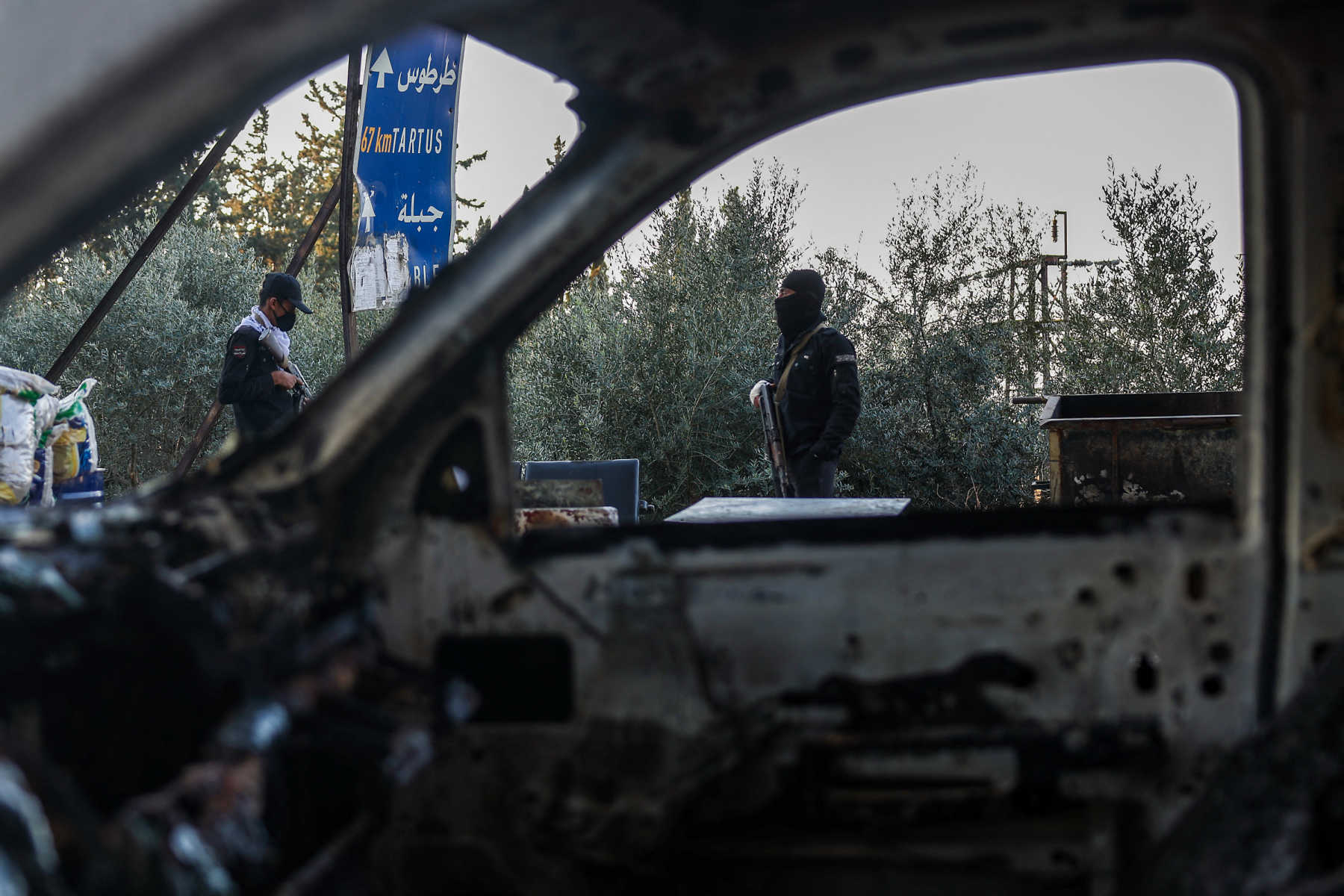عربی
On March 12, 2021, at the U.N. Human Rights Council, the U.S. and 30 other countries signed a rare joint statement condemning Egypt's human rights violations. But words without action are meaningless, especially against dictators. Why would Abdel Fattah el-Sisi worry about an American condemnation when the U.S. still approved a $197 million sale of missiles to Egypt two days after the arrest of American activist Mohamed Soltan's relatives in Egypt on February 14?
Sisi might no longer be "the favorite dictator" of the new U.S. administration, but he will have all the support he needs as long as the Biden administration does not end its military and economic assistance to Egypt. Ending this aid – as opposed to pretending to condition it on human rights reforms – is the only way to end Sisi's cruel confidence that he can do whatever he wants to his people, and still be the recipient of American largesse.
I am an Egyptian citizen and was Minister of Investment under the first and last democratically elected President in Egyptian history, Mohamed Morsi. Calling for the U.S. to stop aiding Egypt is not a call I make lightly. I know very well how the regime's propagandists will spin it as unpatriotic.
The reality is that America's economic and military aid have had no positive impact on Egyptian citizens' lives or security.
Instead, it has helped crush them by facilitating the existence of a brutal regime. Since 2013, the Sisi government, massively funded by American taxpayers, has reached unprecedented levels of repression against the Egyptian people, including American citizens there. Today, more than 60,000 prisoners are detained on political grounds.
U.S. assistance to Egypt has never been more than a series of blank checks to an autocratic, unaccountable military junta. It represents critical political support for the Egyptian government and a license to continue its repressive rule.
I once advocated that U.S. aid be conditioned on human rights reforms. But such conditionality has proved useless in the case of Egypt, as successive administrations have automatically relied on "national security waivers" built into the laws conditioning aid, making the conditions completely irrelevant. Not one single instance of reform has been achieved through the pretend aid conditionality or threats of cuts. Sisi has occasionally released one or two prisoners in response to global campaigns, but promptly replaced these chits with new arrests of innocents. The Egyptian regime has easily gotten away with the vast majority of its state-sponsored human rights abuses.
Since 1987, Egypt has received annually roughly $1.3 billion in military aid and about $300 million in economic aid. Yet, more than forty years after the Camp David Accords, when the aid rewarding Egypt for making peace with Israel started, the geopolitical context has dramatically changed and hardly justifies such an investment. Indeed, the relationship between Israel and Egypt has grown independent from any U.S.-funded incentive and would not be jeopardized by the end of the U.S. assistance to Egypt.
The main justification for America's military support to Egypt has most recently focused on counter-terrorism support for Egypt's war in the Sinai against extremist militants. What was initially a tribal insurgency in 2011 has grown into an endless war against now ISIS-affiliated militants encouraged by a disastrous military campaign. Instead of effectively defeating a small band of about 1,000 militants, the Egyptian army's sledgehammer approach has resulted in gross abuses against civilians there, razing 80% of farmland in North Sinai, demolishing thousands of homes, even entire villages such as the city of Rafah, displacing and evicting communities, and killing thousands.
U.S. economic and military aid also has enabled Egypt to save its own funds and buy weaponry from Russia, China, and North Korea despite U.S. attempts to counter arms trade with these countries.
Ending U.S. aid to Egypt does not mean ending America's relationship with Egypt or foregoing its real interests there. Rather, it means rightsizing and normalizing it. The U.S. can pay for overflight rights and Suez access, just like every other government that pays rents for these assets.
Egyptians want stability, security, and peace, like people the world over. This is also one of America's greatest foreign policy interests. And yet, through its military and economic aid to Egypt, the U.S. has sponsored further instability, oppression, and conflict in the region. Claims of economic progress under Sisi rely on top-down data that ignore the fact that though foreign debt has tripled, half of Egyptian households have to borrow money to meet their daily needs, like food.
The Biden-Harris administration has an important opportunity to live up to its promises to review America's relationships in the region and end a forty-year-old system that is no longer fit for purpose. This could be the beginning of a fairer partnership. Fairer to Egyptians, and fairer to Americans as well.
Photo credit: Egyptian President Abdel Fattah el-Sisi departs the West Wing of the White House, after meeting with then-President Donald Trump, Washington, April 9, 2019. (Photo by Mandel Ngan/AFP via Getty Images)
















![Security forces loyal to the interim Syrian government stand guard at a checkpoint previously held by supporters of deposed president Bashar al-Assad, in the town of Hmeimim, in the coastal province of Latakia, on March 11, 2025. Syria's new authorities announced on March 10, the end of an operation against loyalists of deposed president Bashar al-Assad, after a war monitor reported more than 1,000 civilians killed in the worst violence since his overthrow. The Syrian Observatory for Human Rights said the overwhelming majority of the 1,068 civilians killed since March 6, were members of the Alawite minority who were executed by the security forces or allied groups. (Photo by OMAR HAJ KADOUR / AFP) / “The erroneous mention[s] appearing in the metadata of this photo by OMAR HAJ KADOUR has been modified in AFP systems in the following manner: [Hmeimim] instead of [Ayn Shiqaq]. Please immediately remove the erroneous mention[s] from all your online services and delete it (them) from your servers. If you have been authorized by AFP to distribute it (them) to third parties, please ensure that the same actions are carried out by them. Failure to promptly comply with these instructions will entail liability on your part for any continued or post notification usage. Therefore we thank you very much for all your attention and prompt action. We are sorry for the inconvenience this notification may cause and remain at your disposal for any further information you may require.”](https://dawnmena.org/wp-content/uploads/2025/04/syria-22039885951-350x250.jpg)










![Security forces loyal to the interim Syrian government stand guard at a checkpoint previously held by supporters of deposed president Bashar al-Assad, in the town of Hmeimim, in the coastal province of Latakia, on March 11, 2025. Syria's new authorities announced on March 10, the end of an operation against loyalists of deposed president Bashar al-Assad, after a war monitor reported more than 1,000 civilians killed in the worst violence since his overthrow. The Syrian Observatory for Human Rights said the overwhelming majority of the 1,068 civilians killed since March 6, were members of the Alawite minority who were executed by the security forces or allied groups. (Photo by OMAR HAJ KADOUR / AFP) / “The erroneous mention[s] appearing in the metadata of this photo by OMAR HAJ KADOUR has been modified in AFP systems in the following manner: [Hmeimim] instead of [Ayn Shiqaq]. Please immediately remove the erroneous mention[s] from all your online services and delete it (them) from your servers. If you have been authorized by AFP to distribute it (them) to third parties, please ensure that the same actions are carried out by them. Failure to promptly comply with these instructions will entail liability on your part for any continued or post notification usage. Therefore we thank you very much for all your attention and prompt action. We are sorry for the inconvenience this notification may cause and remain at your disposal for any further information you may require.”](https://dawnmena.org/wp-content/uploads/2025/04/syria-22039885951-360x180.jpg)









